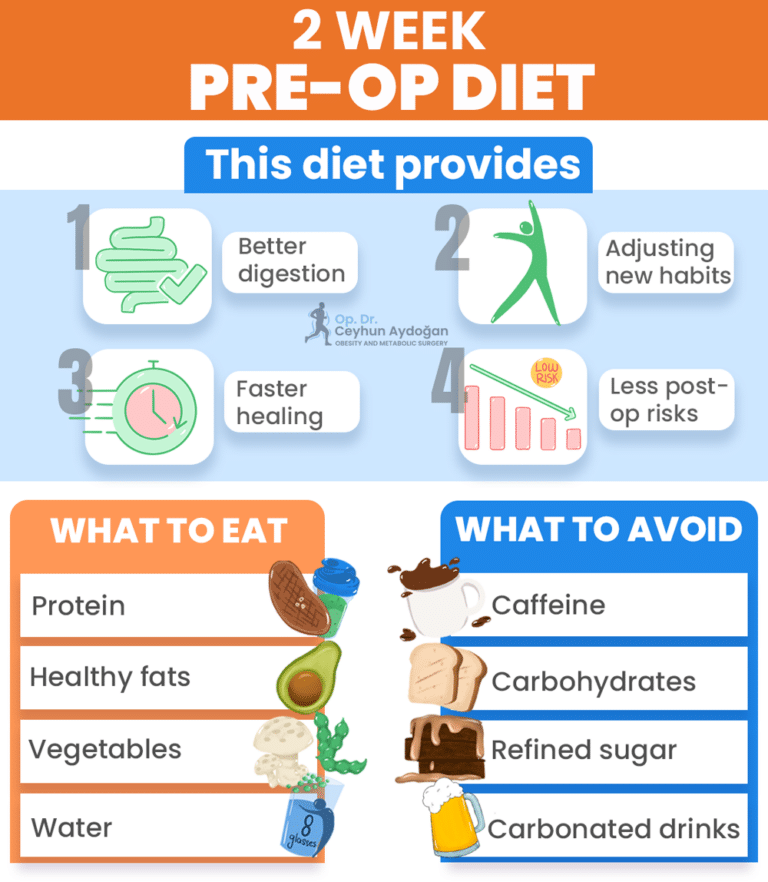The pre gastric bypass diet is generally an optional 2-week diet that’s been prepared for patients who are scheduled to have the surgery. Some patients may be required to follow this diet so that they can lower their BMI and decrease the size of their liver, indirectly making the procedure easier and safer to perform in their cases.
The diet consists of 4 steps, regressing as the due date comes closer. Starting with step 1, there are foods you need to start avoiding such as processed, fried, or starchy food. Also, you need to start balancing your portions as instructed to get sufficient nutrients and reduce your fat and sugar intake. By the 4th stage, there will be more limitations to what you can consume as this is a regressive diet plan.
Although not absolutely necessary, a diet before gastric bypass surgery can only help with the post-op journey and improve the patient’s health. In this article, we will provide you with information about what to avoid and what to eat, its possible benefits, and what the stages look like.

What does pre op bypass diet look like?
The gastric bypass pre op diet plan looks a bit like the post op diet, except it has 4 steps, only takes 2-3 weeks, and regresses as the day of your surgery comes closer in food texture-wise. You start with solid food and switch to soft foods afterward. Finally, in the last few days before your surgery, you will switch to liquids.
Your calorie intake for this diet should be between 800–1200. However, there are other programs that were studied and were found effective for the pre-op diet. Such as VLCKD (very-low-calorie ketogenic diet) → VLCD (very low-calorie diet) → LCD (low-calorie diet). VLCKD and VLCD require a calorie intake of fewer than 800 while LCD requires between 1000–1400. VLCKD requires proper observation and care in order to get the full benefits of it and avoid any repercussions.
A nutritional guide to bypass pre op diet
If you are recommended to or you want to follow it, you should be doing early adjustments. For starters, you should increase your protein intake. Along with consuming high nutritional value foods, you should keep good track of your water intake.
During the pre gastric bypass diet, there are nutrition/foods to avoid such as caffeine, fast/fried food, simple carbohydrates, processed food, and carbonated beverages and/or sugary beverages. Instead of butter and margarine, you can use olive oil and other healthy fats such as avocadoes and nuts.
You can find sugar-free options for snacks that are as satisfying and delicious. For instance, a sugar-free fruit popsicle.
Below is the table where you can find your recommended macros and calories for diet before gastric bypass.
Calorie | Protein | Fat | Carbohydrate |
800-1200 calories | 60-100 grams | 26-42 grams | 50-100 grams |
As you can see, there is a certain range to how much you need to consume. It does not matter which stage you are on, as long as you are in between the recommended macros, you are good to go. Just make sure you are not getting less nutrients or more than recommended.
So what are these stages and what do they look like? You will start with a solid diet which will last around a week. Afterward, you will move on to the 2nd stage, a soft diet. This stage will last shorter than the first, around 5-6 days. And finally, you will switch to a liquid diet for 2-3 days before your surgery. After all this is over, comes the 4th stage, which is the night before your surgery where you should focus on making sure your stomach is empty by the time of your surgery.
Solid diet – 2 weeks before
You should increase your protein intake to make your body prioritize burning fat instead of muscle. Along with that, increasing your consumption of high–fiber fruits and vegetables can help the food pass through the digestive tract easily and improve bowel movements.
During this stage, you should start to avoid:
- Simple carbohydrates such as white rice, white bread, pasta, etc.
- Processed food
- High-sugar foods and beverages
- High-fat foods
- Refined sugars
- Caffeinated beverages and carbonated drinks
- Excess alcohol consumption
- Binge eating
You can have decaf coffee, provided you are aware even though so little, it still has caffeine. So you should keep yourself hydrated since caffeine dehydrates the body.
Although, ideally you should stop smoking 1–1,5 months before your surgery. If it is hard to quit, try smoking less and stop 15 days before altogether. However, if you still can’t stop smoking, make sure you don’t smoke at least 12 hours before your surgery and avoid smoking for 3 months after your surgery.
Soft diet – 1 week before
You should stop consuming red meat like steaks and choose ground beef instead. You can still have lean meats provided you blend them and take your time chewing them. But it can be better to consume protein shakes to keep your protein intake up. For breakfast, you can have one boiled or scrambled egg. You should also stop consuming raw vegetables and steam or boil them to make them softer. Decrease your consumption of citrus fruits to help your stomach regulate acidic levels.
At this point, you need to start avoiding textures and foods, such as:
- Solid food
- Raw vegetables and fruits
- Citrus fruits
- Vegetables that can make you gassy
- Cooked/raw onion or garlic
- High-fat dairy
- Lactose milk
- Spices except for salt
- Coffee
Liquid diet – 2 days before
When you switch to liquids, make sure you get clear liquids into your system, except for protein shakes. This does not include clear alcoholic beverages, of course. As soon as you get to this stage, you should stop consuming alcohol altogether and avoid it for about 3 months after the surgery. You can have low–sodium broths (chicken, bone, or veggie), clear tea without milk, fresh and unsweetened juices, etc. A liquid diet before gastric bypass can help you brace yourself for the same one after gastric bypass.
Last two days, make sure to avoid the following:
- All kinds of dairy
- High-sodium broth
- Alcohol
- Dark tea
- Apple or grape juice
- Oils (olive, coconut, etc.)
- Sugary compote
- Sweeteners
The night before surgery
The day before your surgery, you should stop eating or drinking 10 hours before the surgery so that your stomach can be empty the following morning. And if your surgery is scheduled for late morning, noon, or afternoon, stop eating or drinking 2–3 hours before you plan to go to bed. Lying down to sleep on a full stomach can disrupt your sleep and can cause heartburn, indigestion, and acid reflux. Also, if your stomach is not empty before surgery, your surgeon may need to postpone the surgery.
Pre-op gastric bypass diet helps you with...
People do a pre gastric bypass diet for several reasons. The purpose of the pre-op diet is to reduce the size of the liver, which can make the surgery safer and easier to perform. The liver is located near the stomach and may be enlarged in overweight people, also known as “fatty liver disease”. This condition can make it difficult for surgeons to access the stomach during surgery. Patients can decrease the size of their liver and make their surgery less risky by following it.
The pre-operative diet may aid in weight loss prior to surgery, ultimately lowering the risk of postoperative complications during and after the procedure. Weight loss may have a positive impact on overall health and increase the chances of long-term weight loss success following surgery.
The pre-op diet can also help patients prepare for their life after the surgery. It can also help prepare the post-op one which is crucial for a successful recovery and long-term weight loss. To prepare for post-op changes, patients may follow a pre-op diet that involves consuming smaller portions, opting for healthier foods, and increasing protein intake.
Is it really necessary?
In some cases, some surgeons may ask their patients to follow this for 2-weeks to eliminate possible risks. Fatty liver can make it more difficult to retract from the stomach during surgery. As the BMI of patients surpasses 50, the associated risks also escalate. To avoid these from occurring, some patients may be recommended to follow this diet. Some surgeons also recommend it to all their patients, which is just a preference.
While optional, some patients may want to follow this dietary plan. Patients can follow this pre-op diet as long as they consult with their dietitians and ensure they are not depriving their bodies of essential nutrients, vitamins, and minerals. They can do it shorter for a week, or just liquids 2-3 days prior to surgery.
Other surgeons do not see the diet prior to gastric bypass as necessary. It will have little to no effect on the surgery, but the patient can follow it if they desire to. The use of advanced technology equipment, like a liver retractor, can make it easier to retract the liver from the stomach during a medical procedure, provided that the liver is not excessively fatty or stiff.
(1) Bettini S, Belligoli A, Fabris R, Busetto L. Diet approach before and after bariatric surgery. Reviews in Endocrine and Metabolic Disorders. 2020;21(3):297-306. doi:https://doi.org/10.1007/s11154-020-09571-8
(2) Schouten R, van der Kaaden I, van ’t Hof G, Feskens PGBM. Comparison of Preoperative Diets Before Bariatric Surgery: a Randomized, Single-Blinded, Non-inferiority Trial. Obesity Surgery. 2016;26(8):1743-1749. doi:https://doi.org/10.1007/s11695-015-1989-8
(3) Baldry EL, Leeder PC, Idris IR. Pre-operative Dietary Restriction for Patients Undergoing Bariatric Surgery in the UK: Observational Study of Current Practice and Dietary Effects. Obesity Surgery. 2013;24(3):416-421. doi:https://doi.org/10.1007/s11695-013-1125-6
(4) Jastrzębska W, Boniecka I, Szostak-Węgierek D. Validity and efficacy of diets used for preoperative weight reduction among patients qualified for bariatric surgery. Polish Journal of Surgery. 2021;93(2):53-58. doi:https://doi.org/10.5604/01.3001.0014.7953

